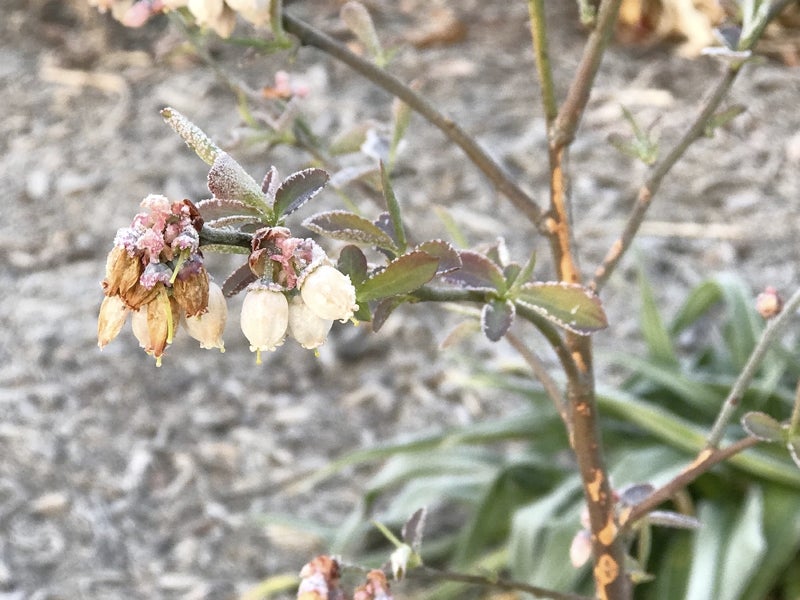Danélle Cutting: What damage will freezes cause?
Published 12:00 am Friday, March 17, 2017

- Submitted photo The freeze has already killed some of the blueberry blossoms, meaning a smaller crop this summer.
This month, it seems like weather and time change is the only thing on people’s minds. I tend to agree that these can be issues in our everyday lives, some more than others.
Of course, I would have loved an extra hour of sleep, but I do enjoy going home with the sun still shining.
The things that make me cringe right now are the weather and how harsh it can be. Here are a few questions we have received this week:
Question: What is the difference between a frost and a freeze? Also, should I be worried about my fruit trees and grapes?
Answer: A frost defined by the National Oceanic and Atmospheric Administration (NOAA) is the formation of thin ice crystals on the ground or other surfaces in the form of scales, needles, feathers or fans. Frosts develop when the temperatures of the Earth’s surface fall below 32 degrees.
A freeze according to NOAA is when the surface air temperature is 32 degrees or below for a widespread area for a significant period of time.
Both are relevant to growers, and with the much cooler temperatures we have had this week, there is potential to kill plants. One that comes to mind is muscadines. They are sensitive to low temperatures and have been killed when temperatures remained low for a considerable amount of time.
Some farms have frost/freeze protection measures, but they are costly and time consuming and even at certain temperatures may not be enough. We are still about a month away from our last frost. I would definitely not plant any tomatoes until our last average frost date, which is usually around April 15.
Keep sending kind thoughts, prayers and hopeful wishes to our growers; this is a very difficult time, and we are nowhere close to the finish line.
Question: I really enjoyed the Do-It-Yourself classes last year; will you be having any more?
Answer: I am so glad you asked. Yes, we will be hosting another DIY (Do It Yourself) Gardening series for 2017. Participants loved these courses, and we realized it is something that we need to continue.
For the 2017 series, we will have five courses covering the topics of soil and compost fertility, pest and disease identification, growing fruits for home use, how to get a blue ribbon at the fair, and how to get your gardens ready for seasons to come. The first program will be held Saturday, April 8, from 10 a.m. to noon. The classes are free and open to the public, but registration is required. Please call the office at 704-216-8970 to reserve your spot and materials.
Question: Do you have any classes or conferences open to the public to learn more about soil health?
Answer: Yes, as I previously mentioned, we do have the DIY series but we also have a Soil Health Field Day on March 31 from 9:30 a.m. to 2:30 p.m. This event is through the Rowan County Soil and Water Conservation District. It is sponsored by the N.C. Foundation for Soil and Water Conservation, N.C. ADFP Trust Fund, Natural Resources Conservation Service and N.C. Cooperative Extension.
The field day will include presentations by professionals on soil health. The event will be held at Morgan Ridge Vineyards in eastern Rowan County where a lunch will be served. Registration is required to save your spot and lunch. You can sign up by visiting go.ncsu.edu/rowansoilhealth or by calling the office at 704-216-8970.
After lunch, participants will travel to the field trial site to visit a small produce farm owned by Michael Shepherd. At the farm, there are produce plots that are the only produce plots in this round of soil health grants. The presentations will cover row crops and cover crops to maximize soil health.
In North Carolina, our weather changes on a dime and many times, farmers are left with a bad hand. Keep those farmers in mind when bad weather calls, and thank them when they are able to have a harvest.
If you have any horticulture or gardening questions or to register for the programs discussed in this article, please contact your local Cooperative Extension agent, Danelle Cutting, at 704-216-8970, or email her at danelle_cutting@ncsu.edu



